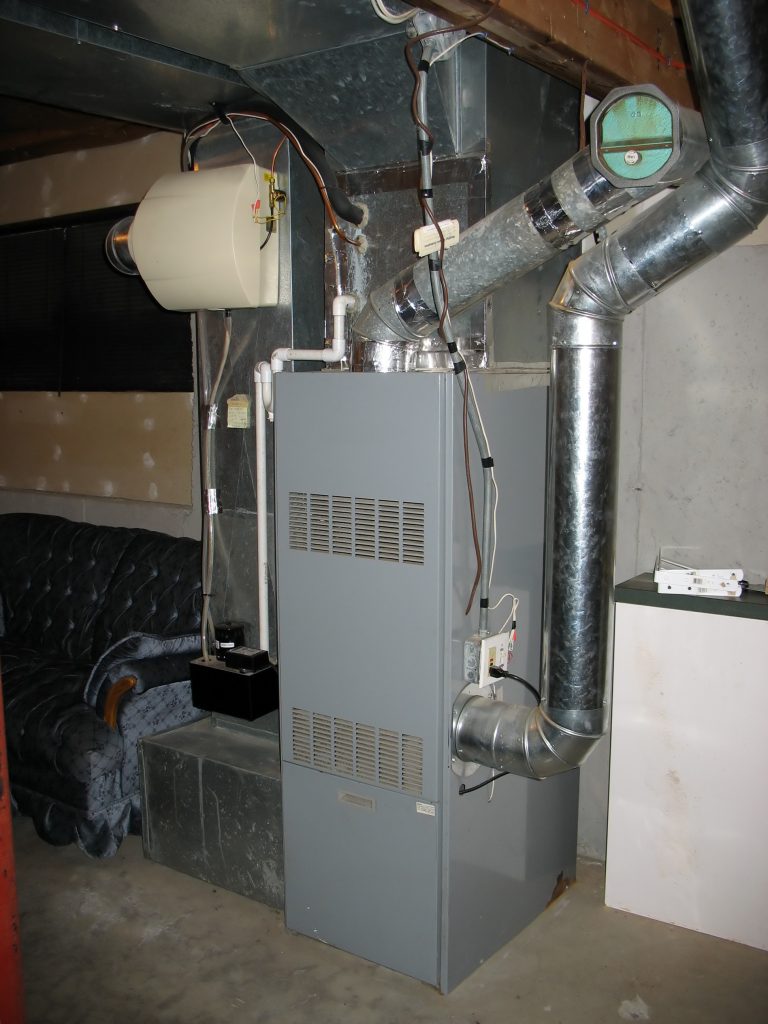Furnace Maintenance and Inspection
 We sometimes take for granted that our furnaces, air conditioners, and some of our appliances run themselves day after day with little to no effort on part. But real frustration hits us when one of these systems fails. These system failures are never a planned event and come without warning when most inconvenient. When a furnace fails, time is a critical factor as the temperature in your heated space decreases rapidly. This critical time is diminished as you locate, dispatch, and wait on repair services to come to the furnace’s aid. In all, a furnace failure is a very unpleasant event. However, there is hope (if not piece of mind) as, ventilation, and air conditioning (HVAC) system failures can be prevented through proper maintenance and professional inspections.
We sometimes take for granted that our furnaces, air conditioners, and some of our appliances run themselves day after day with little to no effort on part. But real frustration hits us when one of these systems fails. These system failures are never a planned event and come without warning when most inconvenient. When a furnace fails, time is a critical factor as the temperature in your heated space decreases rapidly. This critical time is diminished as you locate, dispatch, and wait on repair services to come to the furnace’s aid. In all, a furnace failure is a very unpleasant event. However, there is hope (if not piece of mind) as, ventilation, and air conditioning (HVAC) system failures can be prevented through proper maintenance and professional inspections.
Why is furnace maintenance and inspection important?
Furnace maintenance and professional inspection are important to ensure the furnace’s proper working order throughout the furnace’s lifetime and to ensure the safety of individuals occupying the space the furnace heats. Professional inspection by a certified HVAC technician covers not only the furnace unit itself, but also takes safe air quality and efficiency into account. HVAC technicians are trained and skilled in recognizing where energy is lost or wasted within a furnace’s complete system and are able to gauge the system’s efficiency. HVAC technicians are also trained in assessing the quality of air produced and/or circulated by the furnace system to ensure the heated space is safe to occupy.
How is a furnace maintained and inspected by an HVAC technician?
 There are multiple components to a furnace’s system, moving parts and fixed, that contribute to the furnace’s proper, safe, and efficient function. HVAC technicians have a thorough working knowledge of all these components and their functions within the furnace’s system. This knowledge makes it easy for an HVAC technician to quickly identify and correct any abnormalities that threaten the furnace’s proper function, safe working order, and efficient operation. During an inspection an HVAC technician will lubricate all of the furnace motor’s moving parts to cut friction, prevent wear, and keep the unit running quiet. The technician will also inspect the furnace blower and ensure the blower wheel is free of dust and debris and will ensure the proper seal of the blower access door. The furnace’s heat exchanger will also be inspected for cracks and corrosion that in a natural gas furnace could cause carbon monoxide to escape. HVAC technicians will also inspect the air filter and replace if needed. There is no hard fast rule to when furnace air filters should be changed, as there are many different furnace manufacturers, filter manufacturers, and types/styles of filters. Cigarette smoke, indoor pets, and geographic environmental factors also affect a filter replacement schedule. A dirty air filter restricts airflow causing the furnace unit to work harder which left unchecked can cause the furnace permanent damage. Most recommendations fall between 1 and 3 months but the furnace unit manufacturers recommendation should be followed. If this information is not readily available, the HVAC technician will know if the filter is to be replaced and offer instruction on a filter change schedule, should you desire to change your own filters in the future. On top of all this, the technician will also inspect the vent system and duct work for leaks and blockages that cause inefficient or uneven output of heat.
There are multiple components to a furnace’s system, moving parts and fixed, that contribute to the furnace’s proper, safe, and efficient function. HVAC technicians have a thorough working knowledge of all these components and their functions within the furnace’s system. This knowledge makes it easy for an HVAC technician to quickly identify and correct any abnormalities that threaten the furnace’s proper function, safe working order, and efficient operation. During an inspection an HVAC technician will lubricate all of the furnace motor’s moving parts to cut friction, prevent wear, and keep the unit running quiet. The technician will also inspect the furnace blower and ensure the blower wheel is free of dust and debris and will ensure the proper seal of the blower access door. The furnace’s heat exchanger will also be inspected for cracks and corrosion that in a natural gas furnace could cause carbon monoxide to escape. HVAC technicians will also inspect the air filter and replace if needed. There is no hard fast rule to when furnace air filters should be changed, as there are many different furnace manufacturers, filter manufacturers, and types/styles of filters. Cigarette smoke, indoor pets, and geographic environmental factors also affect a filter replacement schedule. A dirty air filter restricts airflow causing the furnace unit to work harder which left unchecked can cause the furnace permanent damage. Most recommendations fall between 1 and 3 months but the furnace unit manufacturers recommendation should be followed. If this information is not readily available, the HVAC technician will know if the filter is to be replaced and offer instruction on a filter change schedule, should you desire to change your own filters in the future. On top of all this, the technician will also inspect the vent system and duct work for leaks and blockages that cause inefficient or uneven output of heat.
When should a furnace be inspected and maintained?
At the very least, your furnace should be inspected once a year. Ideally, this inspection should take place before the weather gets cooler and the furnace is to be utilized for the first time of the season. Maintenance should be performed anytime the furnace is not functioning properly. Improper function includes unusual noises coming from the furnace or vents, diminished or complete loss of heat output, failure of the unit to start or run, and carbon monoxide presence to name a few. Even the smallest minor problems can eventually lead to much larger problems that can be expensive to correct or damage the furnace to where the whole unit needs to be replaced. Lastly, carbon monoxide leaks from a faulty furnace poses a huge threat to health and life. A thorough inspection by a certified HVAC technician will address and correct any issues your furnace may have by direct maintenance and repair on-site.



